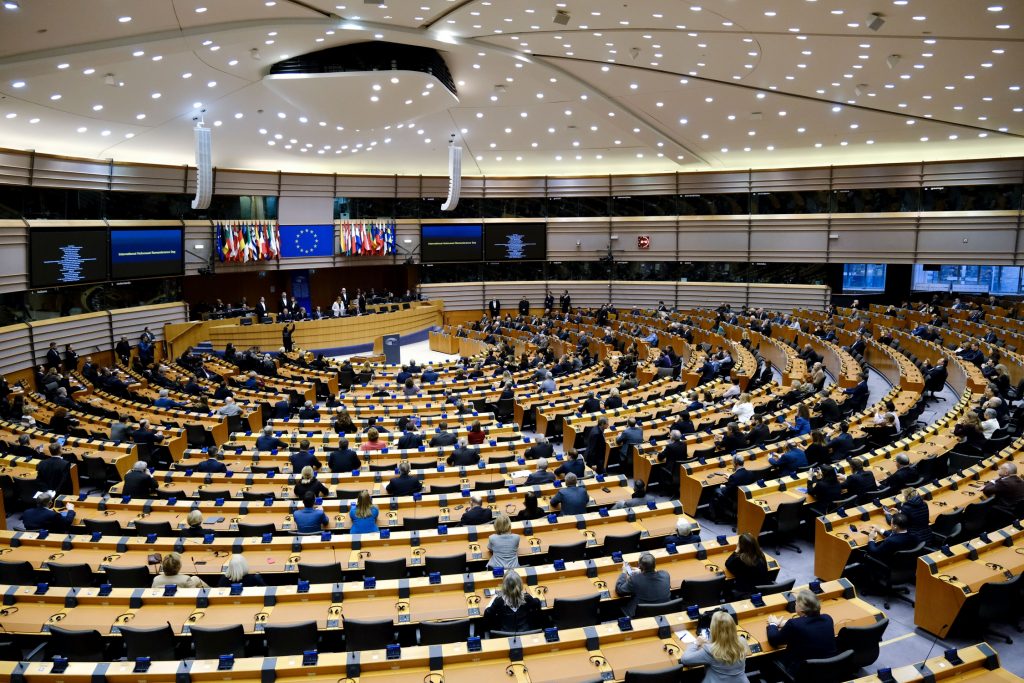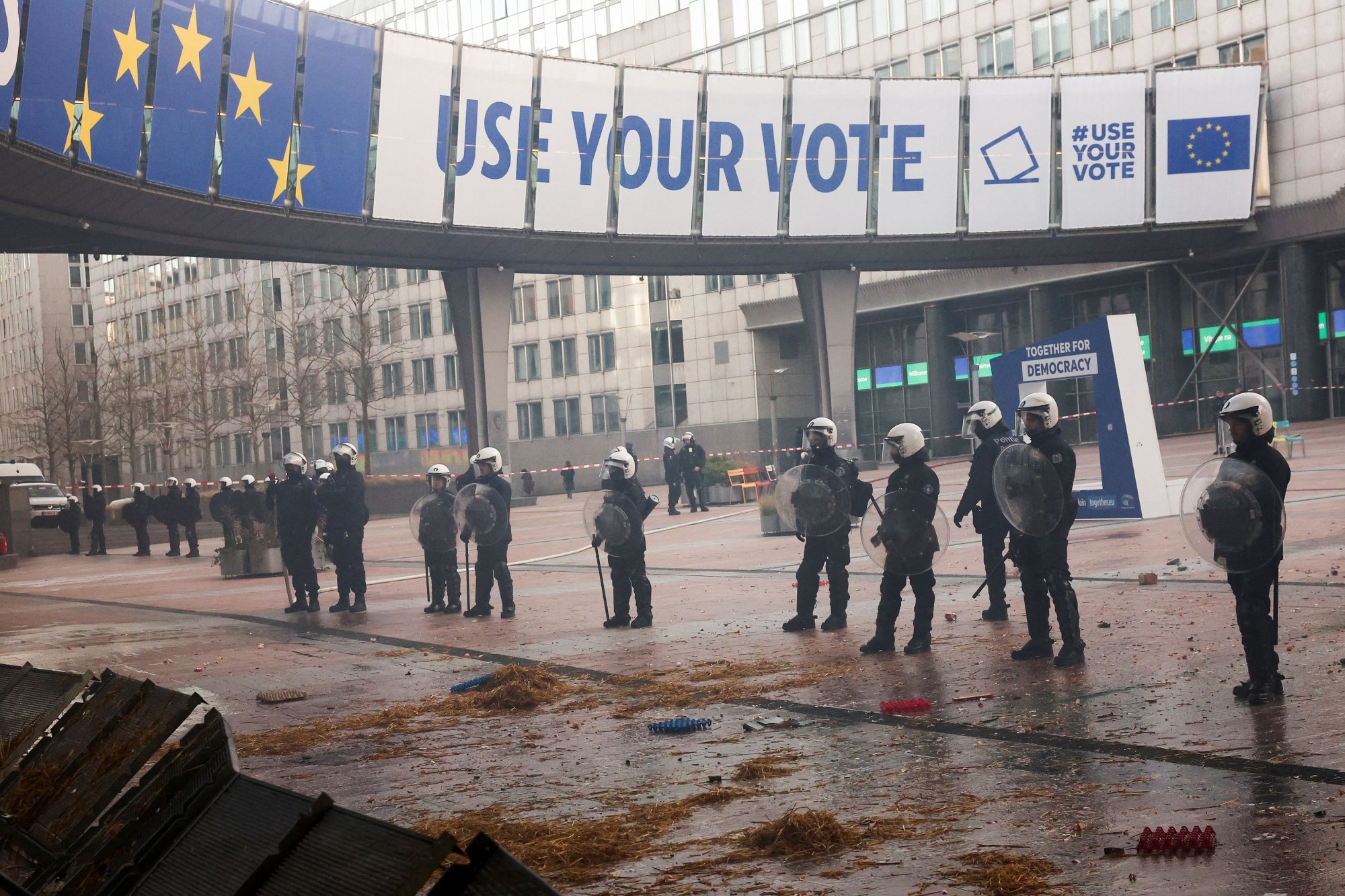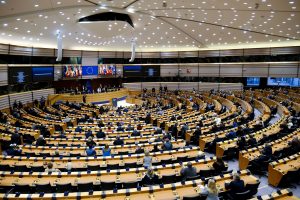Widespread farmer protests across Europe including France, Greece, Germany, Belgium, the Netherlands, Romania, Spain and Italy, are culminating in Brussels, today where EU leaders are convening in a special Summit.
According to estimates by local police in Brussels, some 1,000 tractors have blockaded roads and surrounding routes leading to the EU headquarters in the Belgian capital.
Videos and photos circulating on social media show protesters setting fires around the building where the 27-member assembly was convening. The scenes underscore the intensity of the farmers’ demonstration and the confrontations with authorities in the heart of Luxembourg Square. The incident adds a new dimension to the ongoing protests, reflecting the heightened emotions and discontent within the agricultural sector.
The widespread demonstrations highlight the strong dissatisfaction among farmers, who are expressing their collective ire over European agricultural policies, underscoring the urgent need for a comprehensive and collaborative approach to address the grievances and concerns of the farming sector.
The protesters seek to get their issues on the summit agenda and win some concessions on the financial burdens they face and the increased competition from nations as far away as Chile and New Zealand.
According to reports from French media outlets, farmers toppled a historic statue from its location in Luxembourg Square, triggering clashes with police. Tensions escalated as police attempted to contain the gathering.
Belgian farmers protest as EU leaders gather for summit in Brusselshttps://t.co/HHYoOTtk6X
— The Uncrowned Queen (@FrancineKetelaa) February 1, 2024
According to the Eurostat index tracking agricultural product prices, the average prices of items such as cereals and milk experienced a decline throughout 2023.
Belgium currently holds the EU’s rotating presidency, and Belgian PM De Croo said that he would address the issue during the summit as a late addition to an agenda centered on providing more aid to Ukraine as Russia’s full-scale invasion approaches nearly two years.
French President Emmanuel Macron has said that he wants to hold off on a free trade deal with South American nations because of the vehement opposition of EU farmers and will discuss the issue at the summit.
Spanish farmers were also set to add their weight to the protests. Three main Spanish farming associations agreed to begin protests in the coming weeks to demand changes in what they describe as overly restrictive EU policies.
Farmers have been burdened by debt, squeezed by powerful retailers and agrochemical companies, battered by extreme weather, and undercut by cheap imports, for years now — all while relying on a subsidy system that favors the big players.
The war in Ukraine has only made matters worse. A spike in prices for crops like wheat proved to be short-lived. And Russia’s aggression has upended trade flows, causing a supply glut.
Protesting Belgian farmers have entered central Brussels in their tractors and are now heading toward the European Parliament.
Reports of first barricades and fires on the square (Lux) in front of the Parliament building.
Via @herqles_es pic.twitter.com/dDP4qPc9WR
— Visegrád 24 (@visegrad24) February 1, 2024
Farmers’ incomes, which reached their peak in 2022, have been consistently decreasing since then. A decline between the third quarter of 2022 and the same period in 2023 of nearly 9% has been recorded, according to Eurostat data. This trend highlights the ongoing challenges faced by farmers, pointing to the need for sustained efforts to address the economic factors impacting the agricultural sector.
Greece and Cyprus, however, stand out as exceptions, showing an increase in agricultural income, largely attributed to the rising price of olive oil.
Germans are expressing their discontent in response to their government’s decision to cut subsidies for agricultural oil. In France, protesters are against free trade agreements and environmental regulations, while Greece faces criticism for high production costs and the Common Agricultural Policy (CAP).
However, a common thread running through these disparate concerns is the unbearable burden of energy costs and imports, coupled with the collapse of real prices received by farmers for their products in most countries.






